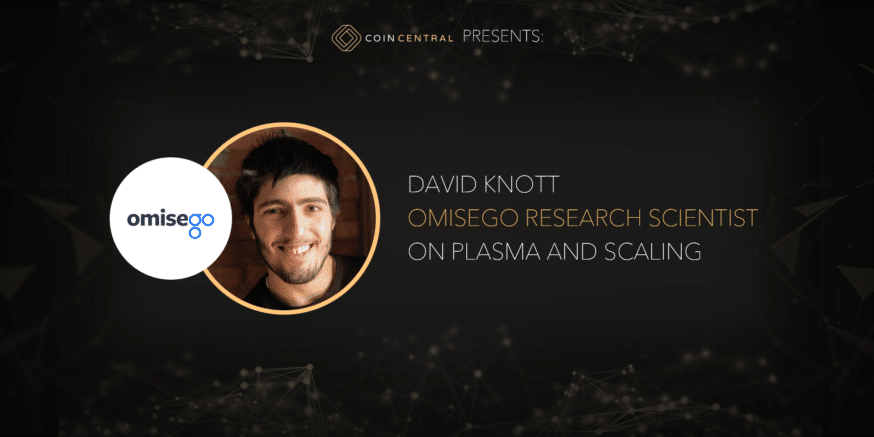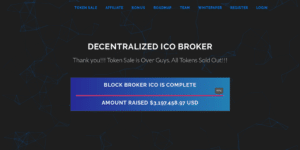David Knott is a research scientist at OmiseGo presently working on Plasma and the OmiseGo decentralized exchange. Coin Central’s Munair Simpson had the opportunity to interview him and his colleague Kelvin Fichter, also focused on Plasma research and development, at the Ethereal Summit last month during Blockchain Week in New York City. We wanted to ask David a couple of questions about the OMG DEX and other things that are happening at OmiseGo.
The Interview
Munair: We want to learn a little bit about your background. How did you get into programming, and eventually join the team at Omise as a researcher?
David: I started thinking about computers differently and got into the programming side of things fairly recently. I was at college studying economics, but then I realized that, when I program stuff and build stuff, the feedback loop was much tighter. I could build something, and I could see “oh, it works,” or it doesn’t work right away and then iterate upon that. That was awesome. And so, I started teaching myself programming. I went to a code school, did some like webdev stuff, then found out about Ethereum and got excited. I did some solidity contracts when I started working for Ethereum on Viper, which is a safety first smart contract programming language and now I’m working for OmiseGo on Plasma.
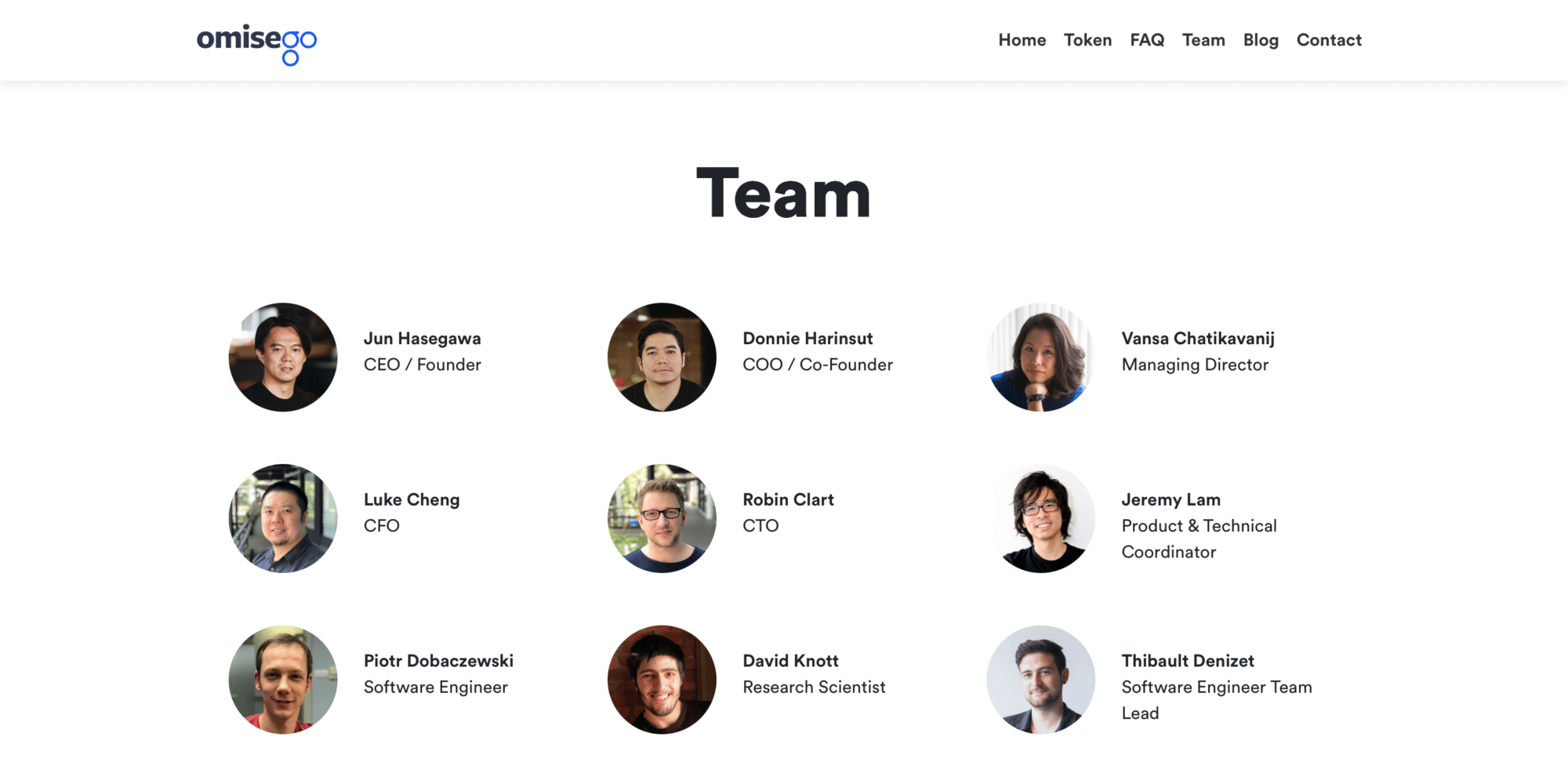
Munair: Would you like to tell us a little bit more about Plasma and what you’re doing with Plasma?
David: I’m a Plasma researcher. The Plasma whitepaper was amazing, but it was very broad and didn’t have all the technical information necessary for immediate implementation. So, I’m working on taking the vision and then specifying it and pushing it forward so that we can implement it and use the Plasma framework to support the decentralized exchange that we’re building.

Munair: It sounds very exciting. I remember your presentation at Fluidity. We talked a lot about how Plasma is able to scale. For us at CoinCentral, we are very interested in DEXes and we want to know how the scaling is going to make you guys add more value in comparison to other exchanges right now. In particular, we want to know when you were going to release it and then if you can talk a little bit about the performance of the project so far?
David: Sure. So, right now when I send someone value on Ethereum, I still have to think about the transaction costs. It’s significantly better than say a credit card fee, but there’s still a fee there. It’s not frictionless. Through Plasma, we can get sufficient bandwidth to make frictionless transactions where the fee you pay is so small that it doesn’t even have to cross your mind and it can all be abstracted away. That’s awesome, particularly for people who have relatively low amounts of money and value. For the underprivileged, these frictionless transactions across borders will be super helpful. In terms of when we’ll actually release things, pessimistically, the first iteration utilizing Plasma will be released this year in Q4. Right now, we’re focusing on a lot of things. We’ve got a production team in Poland working on the blockchain side of things to get the Plasma MVP spec that we’ll release to production. Then on the research side of things, we’re basically pushing the limits on both the Plasma MVP architectural specifications and the Plasma Cash specifications.
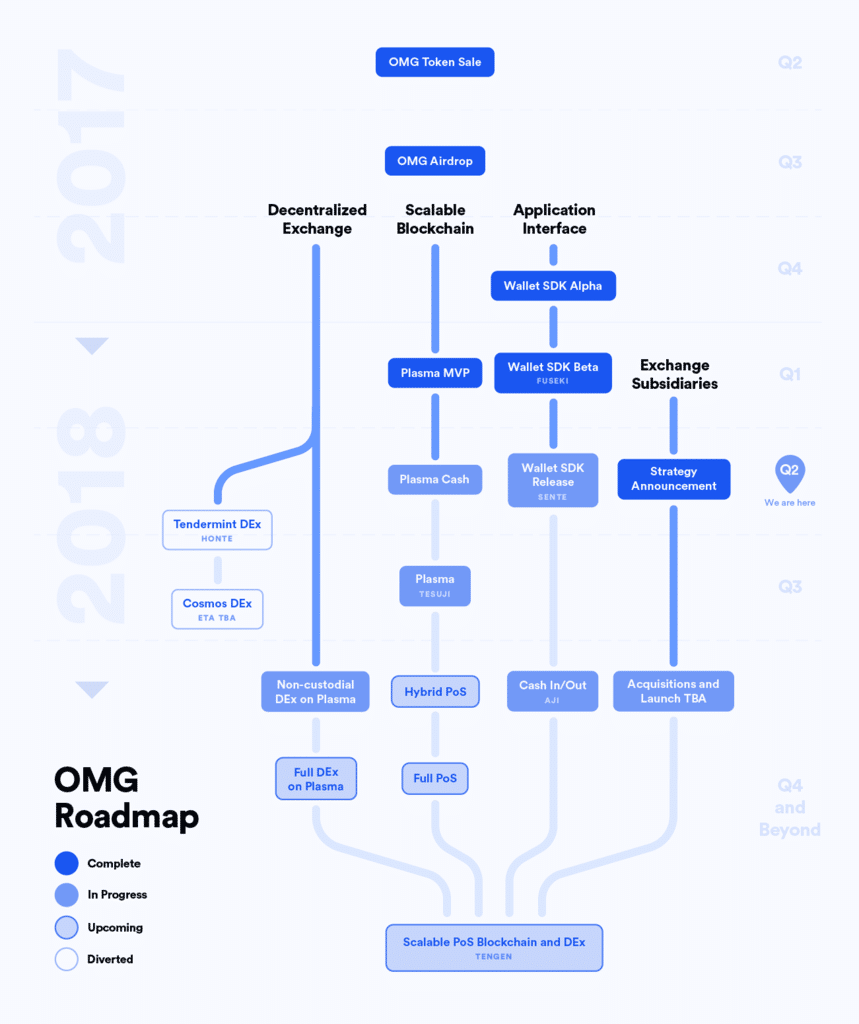
Munair: The Plasma Cash sounds very exciting. Is that going to be the bedrock of the way the OmiseGo DEX will work or is it just something that’s mildly interesting to research?
David: So, right now, it’s super interesting. Progress is being made but Plasma MVP has been around a slightly longer. Right now, we’re focusing on expanding both on the research side of things, but we’re taking a Plasma MVP-esque architecture to production. Then we’ll keep our eyes on what the research side is doing with Plasma Cash and we’ll probably have some transfer where we’ll be pulling some stuff in from Plasma Cash as it progresses.
Munair: With the OmiseGo DEX, you guys are planning to use Ethereum to get the value out for the end user, is that correct?
David: The OMG network will be routed into Ethereum. The OMG network, even though each transaction won’t be broadcast on Ethereum, will share a lot of security properties with the bigger Ethereum network. We’ll basically capture a lot of value and security that Ethereum has from having so much financial capital behind it.
Munair: It sounds like, when I think about the OmiseGo project overall, the DEX is more or less to facilitate transactions in the Southeast Asia market where people might be in Thailand and need exchange value with people who are maybe in Vietnam. Is that more or less the driving force behind the DEX and how it’s supposed to add value? Or is this a DEX where people who might want to do something, like typical order book trading, can use OMG Plasma DEX to do large transactions? Like, for example, the Radar Relay guys or other relayers that are using the 0x protocol?
David: Clearly, we want to help underrepresented, underprivileged people and that’s definitely a goal, but we’re thinking about the entire world. We’re based in Southeast Asia, but the OMG network will be global and we’re going after everything.
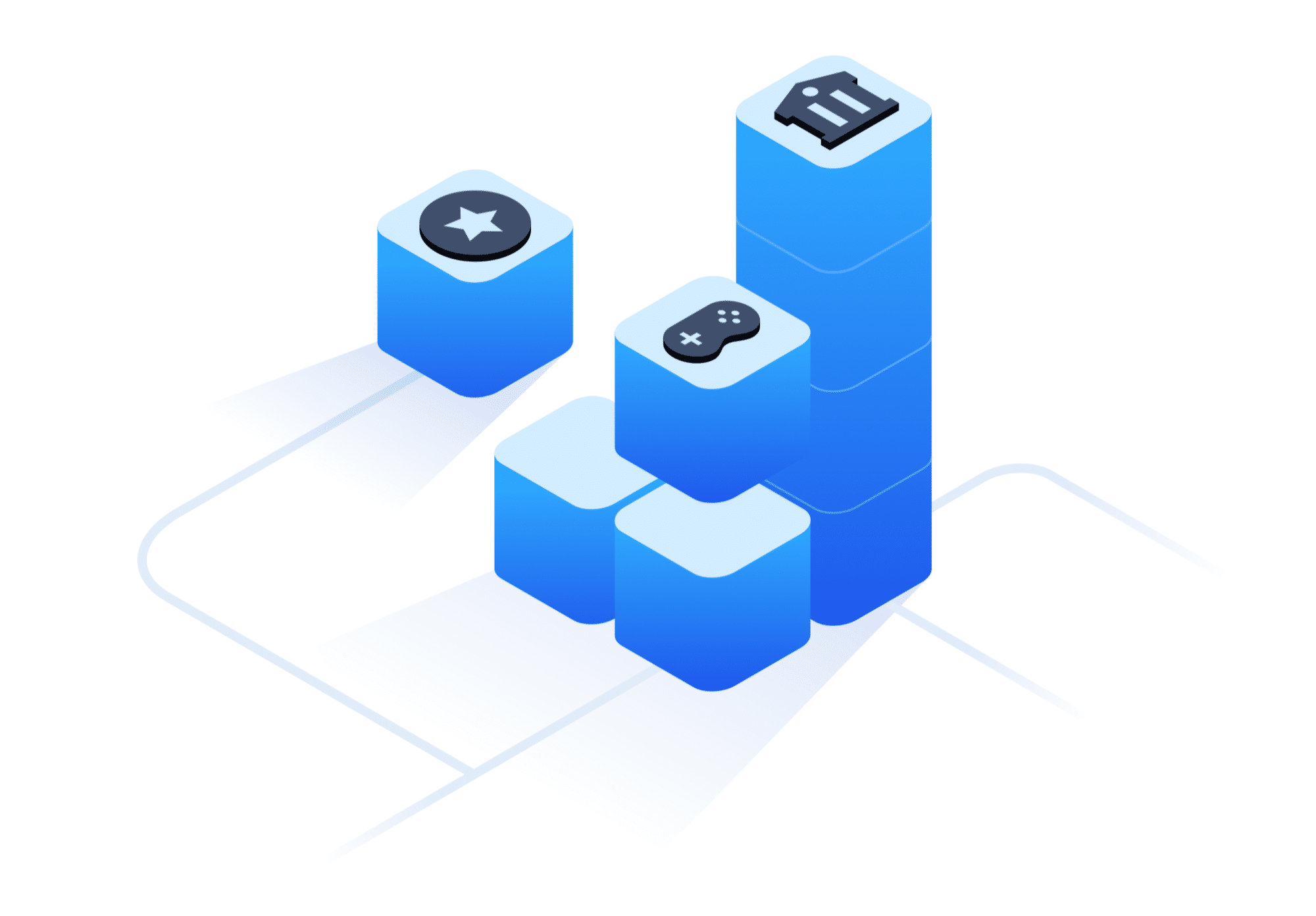
Munair: One of the problems with decentralized exchanges is front-running. Have you thought about this and what are your ideas on how to overcome this?
David: Yeah, front-running is a big issue. We’ll probably start by utilizing a commit-reveal scheme with batched order matching processing. Commit-reveal is basically people committing to an order before revealing it so that someone doesn’t see the actual content of the order, so they can front run it. Then we can batch order and what that does is it takes away the game of speed so that within a given period, anyone can put in an order and then they’ll be processed together sometime in the future.
Munair: It’s kind of like what the guys at Gnosis were doing with their exchange.
David: Yes, they’re doing batch Dutch auctions. Yes, we’re talking to them about different ideas to deal with front-running and just general DEX architecture.
Munair: So, it sounds like you and the team are very collaborative. You have Vitalik as one of your advisors. You’ve got connections with so many people who are making big moves in the industry. Are you open to working with guys like Gnosis and maybe other people in the exchange space on making the best possible decentralized exchange?
David: Definitely. For us, it’s all about collaboration and all about values. Of course, we’re building a product and we want that product to sell, but we’re happy to collaborate on making a better ecosystem and pushing forward the vision of making the world a better place. That vision is very strong within blockchain and within the Ethereum community in particular.
Munair: David, you brought a colleague with you today. Do you want to introduce your colleague?
This is Kelvin. He is a Plasma researcher.
Munair: Tell me a little bit about yourself and your team and what do you do as a researcher?
Kelvin: I’ve been with OmiseGo since pretty much the beginning of this year. I basically spent all my time trying to think of new things that we can do with Plasma or I look for specific things I want out of Plasma and then try to build them.
Munair: You guys are two of the folks on the Plasma team also looking at DEXes for OmiseGo. Exactly how big is the team?
Kelvin: We have three people on the research team and then we have an implementation team. Then there are also a few other teams that aren’t OmiseGo that are working on Plasma that we’re working together with. It’s a lot of people from all around the world. I don’t even know how many people at this point.
David: On the research side of things it’s really about information exchange. Even if people aren’t working directly with OmiseGo, so many different people are pushing Plasma forward. I think we’re benefiting from it as well as everyone else who’s interested in Plasma as a layer two scaling solution.
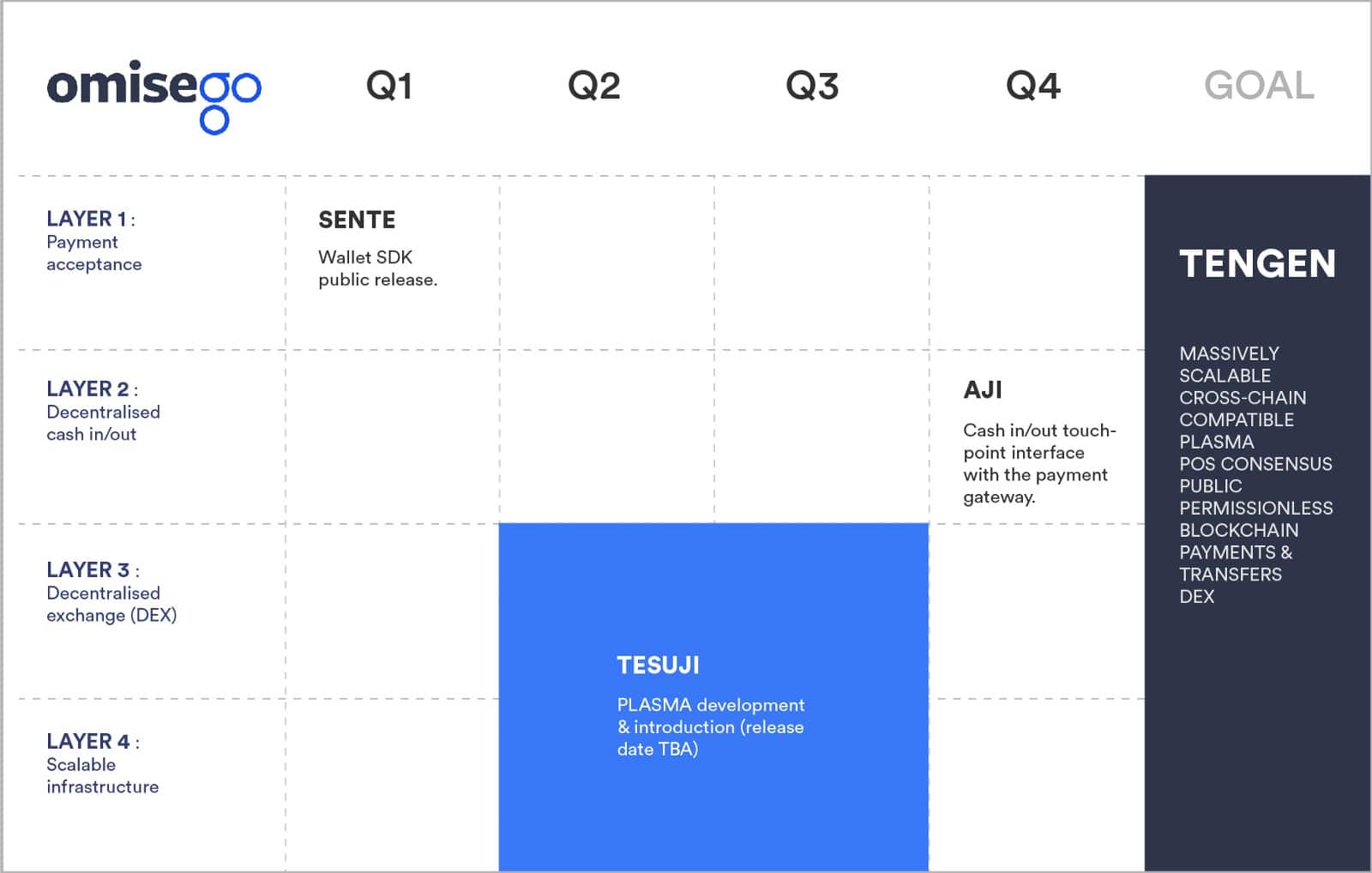
Munair: The biggest problem everyone finds with decentralized exchanges is liquidity. You could go on a DEX and it might be all built out, but there is no liquidity there. What are you guys at OmiseGo doing to ensure that when you launch the DEX that there’ll be sufficient liquidity and you’ll have a have a really decent exchange?
David: We’re very aware of that concern and we’re thinking a lot about it. We’re doing a few things. One is we’re currently launching a centralized exchange, which will basically plug into the decentralized exchange for noncustodial settlements, so that will help bring liquidity from the get-go. We’re also focused on building out the tooling around integrating with the OMG network and talking with different centralized and decentralized exchanges who might be willing to plug into the OMG network. Then we would basically share liquidity.
Munair: Can you name any of these centralized exchanges that you might want to partner with?
David: I’m a Plasma researcher, so that sounds just a tad too business-y for me.
Munair: Is there anything else you guys want to add?
Kelvin: You can do it. Come help out. It’s not as hard as it seems. If you would like to do it, we’re always there to help you get onboarded and learn more about Plasma. If you want to do Plasma research, hit us up.
David: Scaling solutions are available now. Don’t be intimidated. Read the docs, look over the code, go to GitHub to see the bleeding edge of what thought leaders are thinking about [layer two scaling] and then just break shit and implement this stuff yourself.
[thrive_leads id=’5219′]
Thank You, David and the OmiseGo Team
We are hoping for great things. To learn more about OmiseGo’s vision, check out their official guide, white paper, and roadmap.
Never Miss Another Opportunity! Get hand selected news & info from our Crypto Experts so you can make educated, informed decisions that directly affect your crypto profits. Subscribe to CoinCentral free newsletter now.






